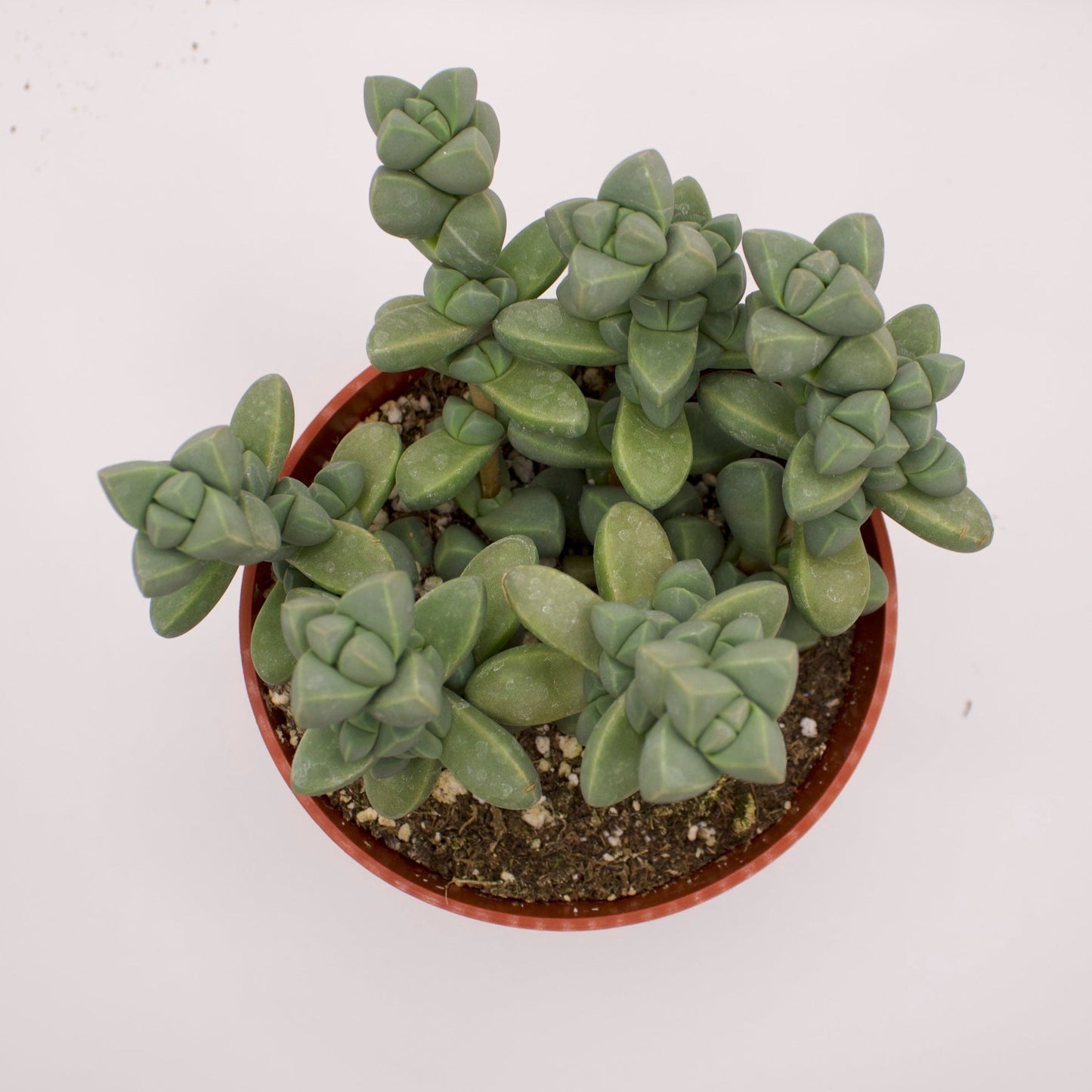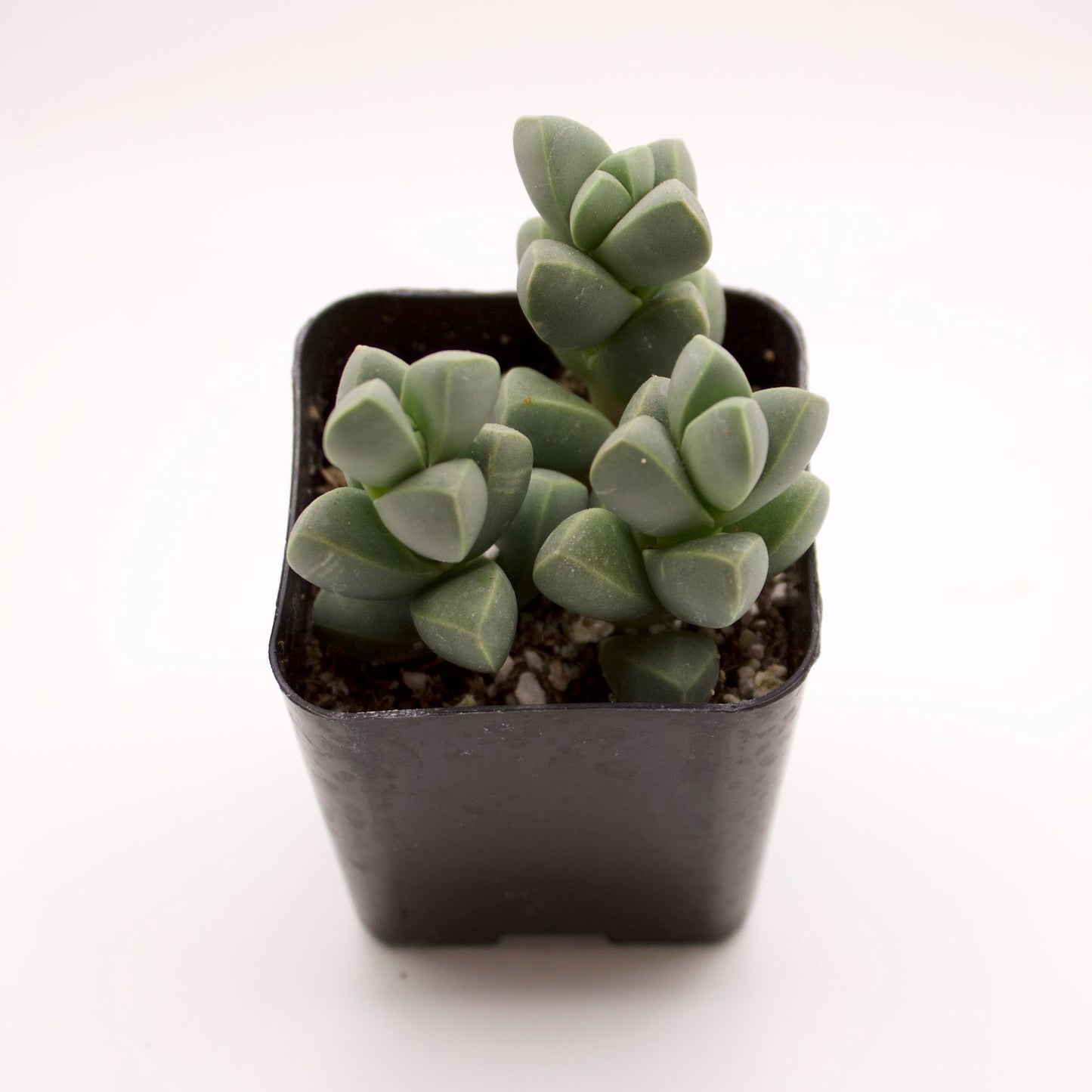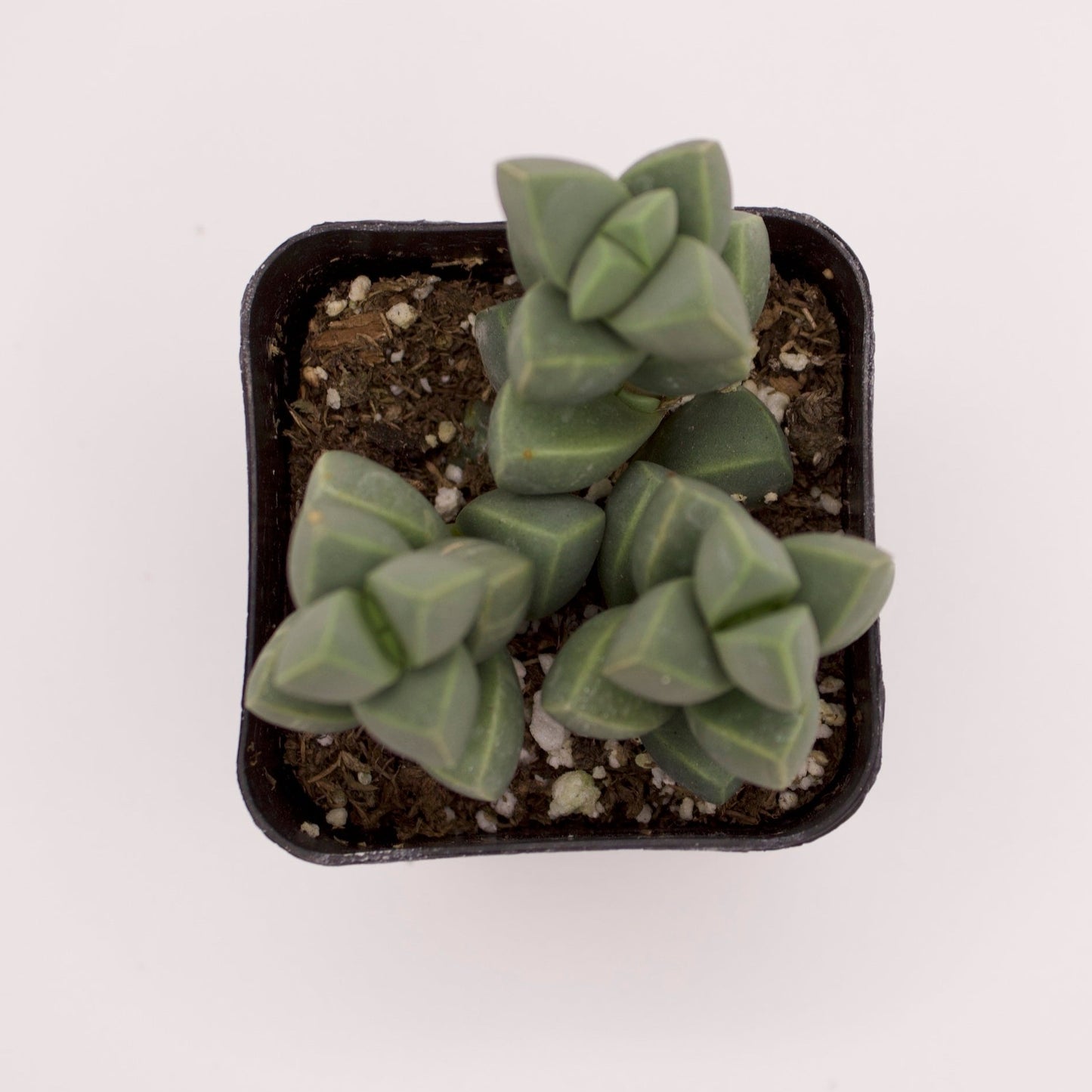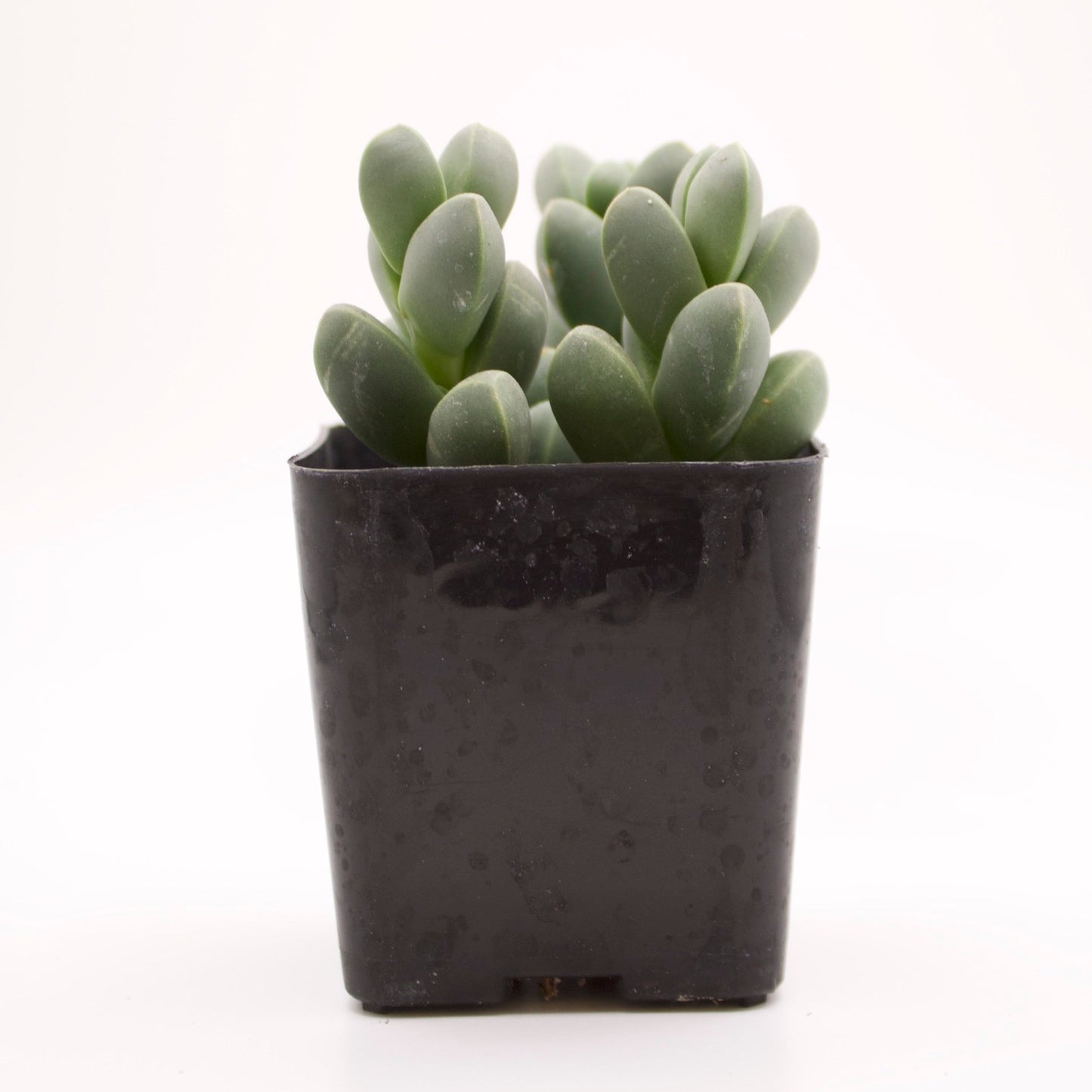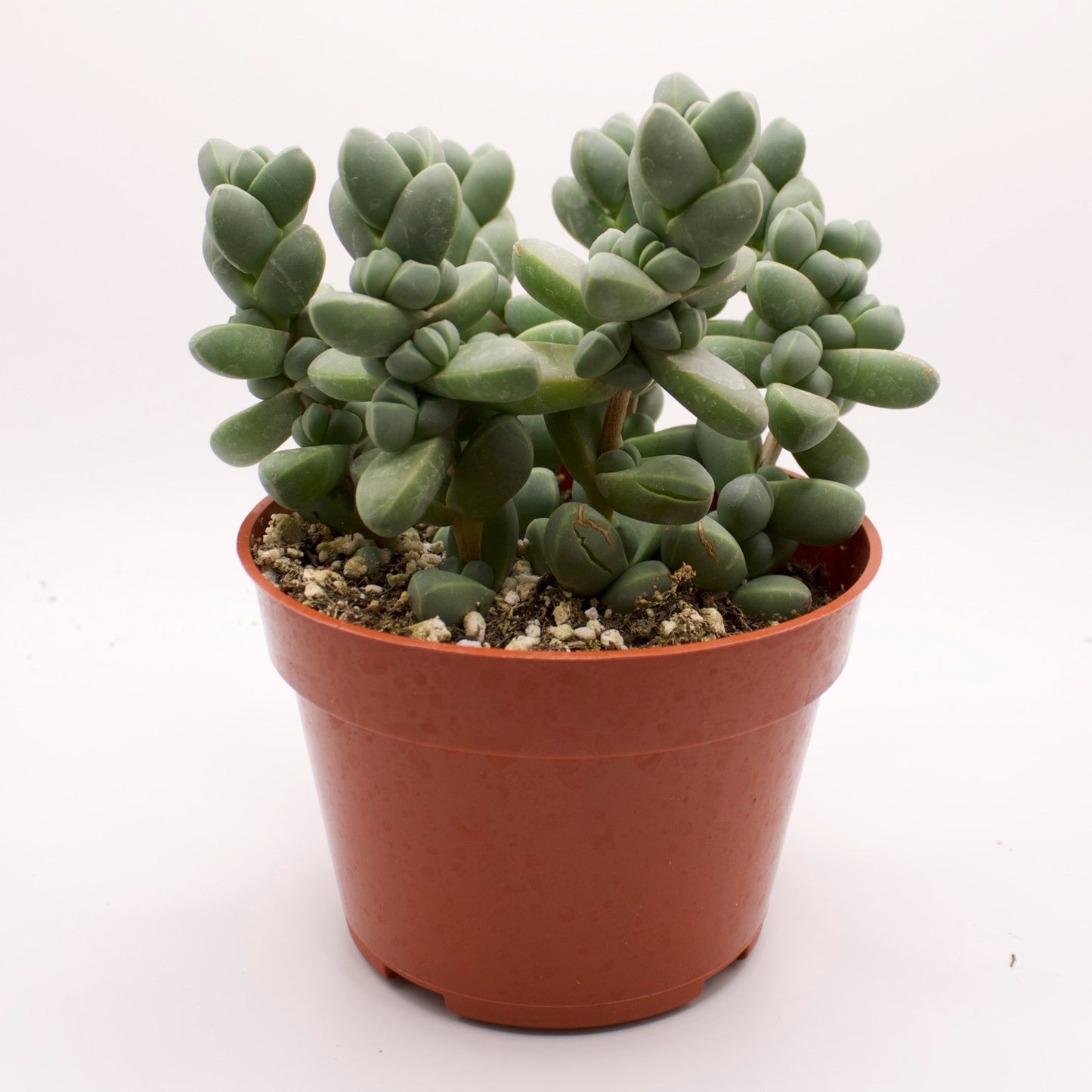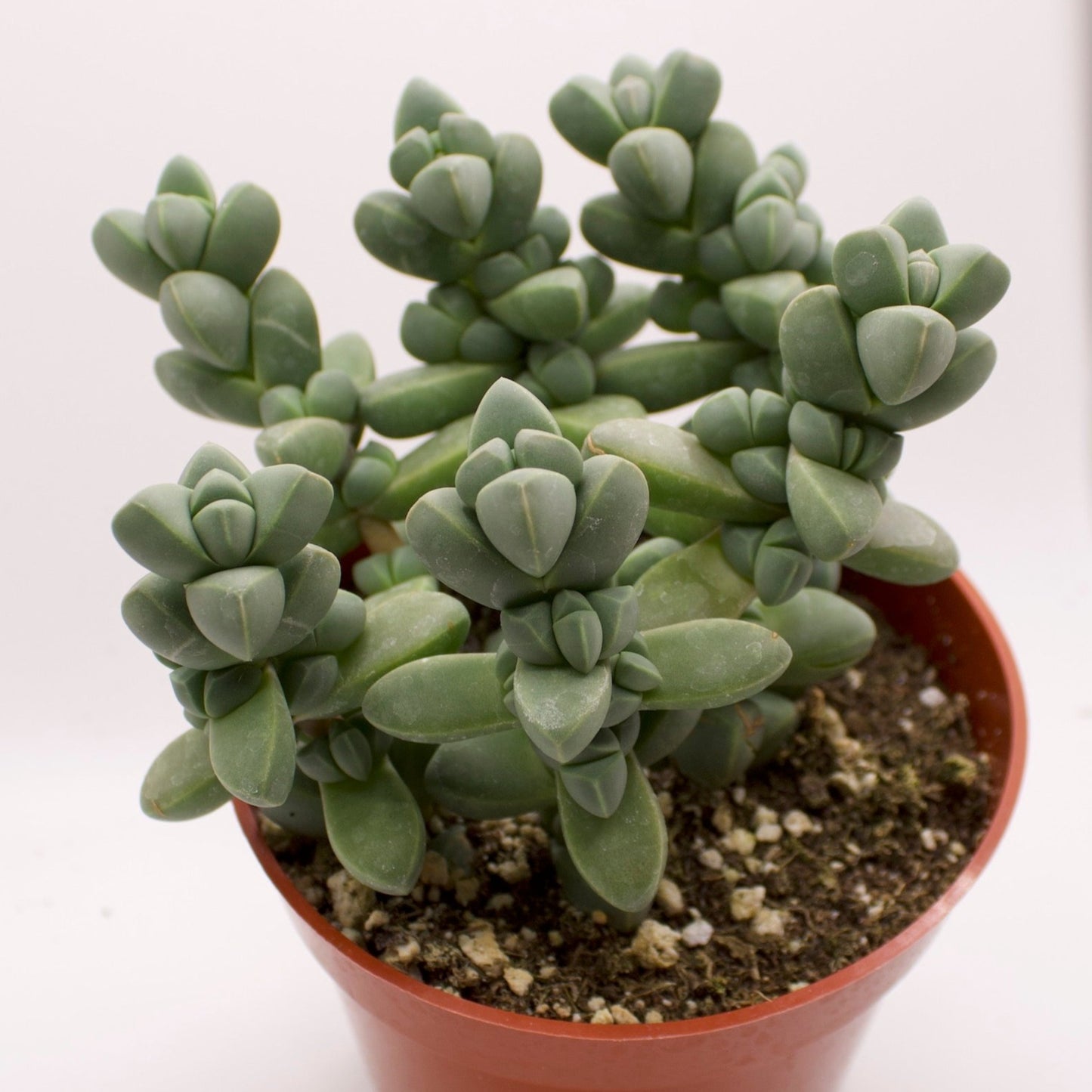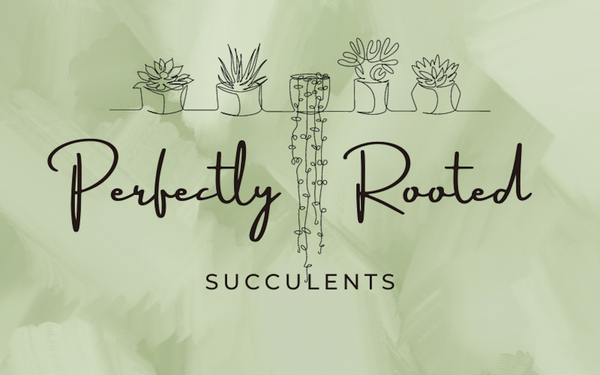Lehmannii Ice Plant
Lehmannii Ice Plant
Couldn't load pickup availability
- Plant Description
- Specifications and Regions
- Watering and Light Recommendations
Introducing the Lehmannii Ice Plant: Among the diverse array of succulents commonly referred to as Ice Plants, the standout is undoubtedly the Corpuscularia lehmannii, also sometimes labeled as Delosperma lehmannii. What sets it apart is its remarkable appearance—characterized by angular, three-sided leaves that are exceptionally plump and adorned with a smooth, cool blue-green complexion. Native to the rocky crevices of South Africa, this plant boasts a resilient taproot, a testament to its ability to thrive in full sunlight and withstand prolonged periods of drought. As the spring and summer seasons roll in, it graces us with an exquisite display of large, multi-petaled buttery yellow flowers. Notably, these blooms greet the morning sun by unfurling and retreat with grace as the evening sun dips below the horizon.
- Native to: South Africa
- Hardiness: Tender soft succulent, susceptible to frost
- Zone: Suitable for zones 9b-11
- Recommended light conditions: Partial Sun
- Bloomtime: Summer-Fall
Indoors: Instead of providing your succulents with small amounts of water throughout the week, it is advisable to thoroughly soak the soil until water drains from the pot's drainage holes. Ensure that any excess water in the saucer is discarded, as succulents prefer not to sit in water. Allow the soil to completely dry out before watering again.
Outdoors: During the summer, water your succulents every two weeks by giving them a deep soak and allowing the soil to dry before watering again. In the winter, watering once a month is sufficient.
Plant Description
Introducing the Lehmannii Ice Plant: Among the diverse array of succulents commonly referred to as Ice Plants, the standout is undoubtedly the Corpuscularia lehmannii, also sometimes labeled as Delosperma lehmannii. What sets it apart is its remarkable appearance—characterized by angular, three-sided leaves that are exceptionally plump and adorned with a smooth, cool blue-green complexion. Native to the rocky crevices of South Africa, this plant boasts a resilient taproot, a testament to its ability to thrive in full sunlight and withstand prolonged periods of drought. As the spring and summer seasons roll in, it graces us with an exquisite display of large, multi-petaled buttery yellow flowers. Notably, these blooms greet the morning sun by unfurling and retreat with grace as the evening sun dips below the horizon.
Specifications and Regions
- Native to: South Africa
- Hardiness: Tender soft succulent, susceptible to frost
- Zone: Suitable for zones 9b-11
- Recommended light conditions: Partial Sun
- Bloomtime: Summer-Fall
Watering and Light Recommendations
Indoors: Instead of providing your succulents with small amounts of water throughout the week, it is advisable to thoroughly soak the soil until water drains from the pot's drainage holes. Ensure that any excess water in the saucer is discarded, as succulents prefer not to sit in water. Allow the soil to completely dry out before watering again.
Outdoors: During the summer, water your succulents every two weeks by giving them a deep soak and allowing the soil to dry before watering again. In the winter, watering once a month is sufficient.
Share
